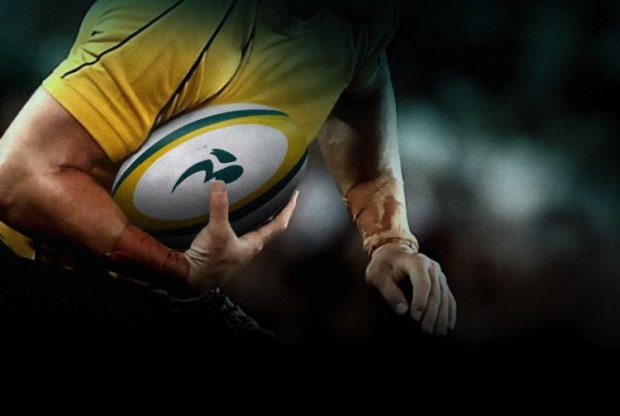
No doubt sparked by the deja vu of a splintered scrum and loss to the Poms, questions are starting to be asked about Robbie Deans as coach, probably more than at any other time during his reign.
It’s a complex and emotive issue, so we thought we’d bring a couple of viewpoints (by no means covering every aspect) to spark off the debate in response to the statement:
“Robbie Deans is doing the best possible job as Coach of the Wallabies“
![]() The Case For – by Gagger
The Case For – by Gagger
Both America and in Britain are in deep economic shit. So deep that it will take years for either to fully recover. While neither countries’ governments were in power when the shit was caused, both already have opponents asking why on earth it isn’t either fixed yet, or getting fixed faster.
So it is with Robbie Deans and the Wallabies. No one can deny that his balance of payments currently suck. For me though, the important question is whether Dingo is doing the best possible job to fix them. I say he is, by the most over-riding of all factors; quality player depth.

For too long Australia has clung by its fingernails to a starting 15 that is one injury or retirement away from oblivion. Unlike his previous two predecessors, Deans has always taken the short term pain for long term gain. While Connolly limped into a 2007 World Cup clinging onto a half back pairing that MacQueen had discovered in the 90’s, Dingo has fostered a pool of young back-line talent that is making the world sit up and take notice.
These tests against England have been prime examples of this policy in progress for Australia’s troublesome front row stocks. Instead of going back to Baxter or Dunning, AntipoDeans has now blooded three new test players, two of which I suspect will become stars. Some argue it was too soon, but if not now, when?
With around 17 tests a year, opportunities are precious for apprentice Wallabies and cannot be wasted on yesterday’s men. Of the run on XV that won against England two weeks ago, TWELVE players had less than test 20 caps. In the South African team that demolished France that same day, nine had between 20 and 60 caps, and this was a team in rotation. It just takes time to get talented young players into that test cap “kill zone” of experience blended with the dynamism of youth.
The pain we feel and the win/loss numbers capture therefore is the Wallaby player pipeline ‘jumping a generation’ (together with those freakin Springboks coming good). From the Tuqiris, Waughs, Baxters and Mortlocks; to the Coopers, Hornes, Daleys and O’Connors. Each of these decisions is driven by a bigger vision; not to eke out meaningless percentage wins, but to build a dynasty with the depth to win the biggest competitions and continue to do so year on year. Sound like a certain South Island provincial team’s record?
Unsurprisingly such fundamental change does not happen quickly, but it’s a vision I buy into, and pain I’m willing to endure.
![]() The Case Against – by Langthorne
The Case Against – by Langthorne
“We got up and that is Test rugby and that is the only thing that matters.” – Robbie Deans, 12 June 2010
The most important measure of a coach’s performance is that of games won. In this measure Deans has a test match win/loss ratio of 54.84% (17 from 31), which is a long way short of the best ever Wallaby coach Rod MacQueen with 79.07% (34 from 43), but also below Alan Jones with 70% (21 from 30), Greg Smith with 63.16% (12 from 19) Bob Dwyer with 63.01% (46 from 73), and even below Eddie Jones with 57.89% (33 from 57) and John Connolly with 64% (16 from 25). Surely someone doing the best possible job would be closer to Rod MacQueen than to Eddie Jones when it comes to the bottom line.

[*Just in case it is in any doubt, matches against the Springboks and All Blacks alone are even less flattering: MacQueen 66.67% (10/15), Connolly 40% (4/10), Alan Jones 37.5% (3/8), Dwyer 37.04% (10/27), Eddie Jones 39.13% (9/23), Deans 28.57% (4/14), Greg Smith 25% (2/8)]
Winning is the object of the game. Winning is a measurable fact. Winning is not subject to opinion, assumption or interpretation. Winning is attractive to supporters (and, by extension, sponsors, advertisers and broadcasters). Winning is good for Australian rugby. Winning is something the Wallabies have been doing less with Robbie Deans than with any other Wallaby coach in the last 30 years.
Under normal circumstances, and for any other coach (in rugby or any other sport), that would be sufficient and conclusive, but for argument’s sake, one final point:
There is no dichotomy between ‘blooding new talent’ (or ‘building depth’) and winning matches.
The coaching records above cover almost 30 years. Each of the coaches mentioned had to manage generational transition. New talent is only a barrier to winning matches if it is introduced prematurely or recklessly.


